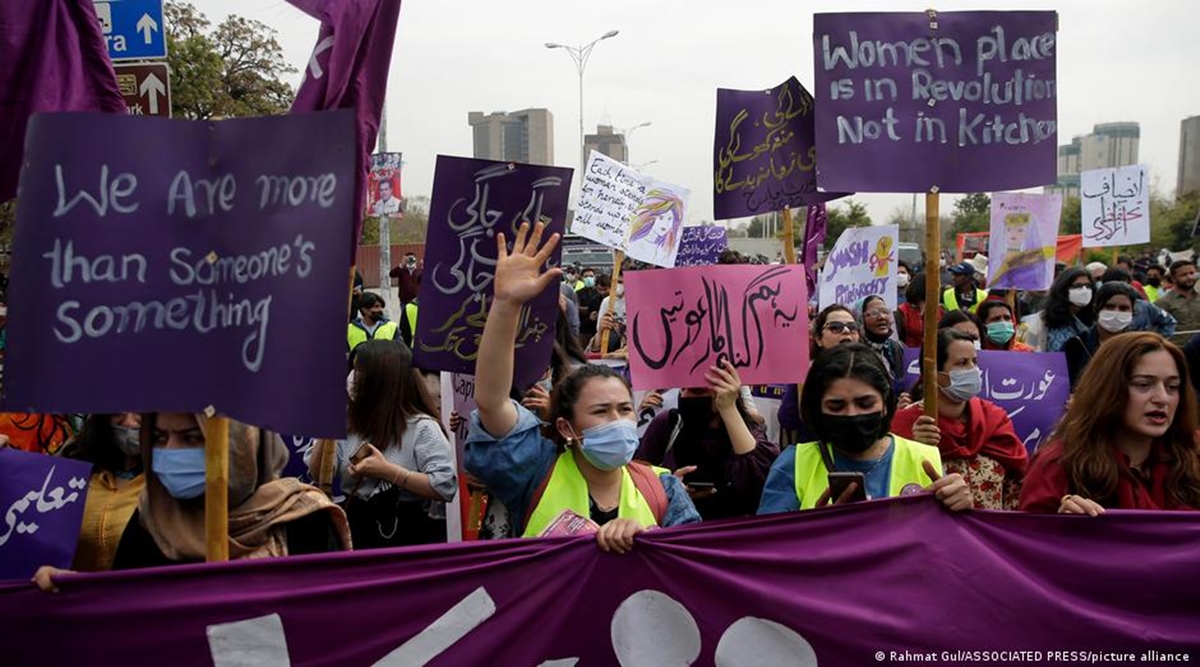More women in Pakistan are choosing to walk away from their marriages, even though divorce remains a complicated social taboo in the country’s conservative culture.
Women’s rights activists say the rise is due to women becoming more powerful in the Islamic nation’s patriarchal society and less willing to settle for abusive marriages.
In Pakistan, divorce is not supervised by any special authority and the rules are dictated by Sharia or Islamic law.
In the South Asian country, a woman cannot “apply for divorce” but has the right to dissolve a marriage under Sharia law without her husband’s consent. This is called “khula” and is decided by a family court.
There are several reasons a woman may request a dissolution of marriage under khula. These include spousal abuse, husband abandonment, or a husband’s mental health issues.
Although there are no official numbers of women seeking to dissolve their marriages, the number of khulas appears to be increasing.
According to a 2019 Gallup and Gilani Pakistan poll, 58% of Pakistanis believe divorce is becoming more common in the country.
The poll found that 2 in 5 respondents believed that a couple’s in-laws were to blame for most of these cases.
Pakistani women demand more autonomy
Atika Hassan Raza, a lawyer with the Human Rights Protection Center, a human rights nonprofit in Lahore, told DW that more and more women are looking for a khula. Formal divorce cases in Pakistan must be initiated by the husband. Unlike a khula, husband’s consent is mandatory.
Raza added that more family courts would be established to deal with family law, khula and guardianship issues. She noted that the number of family judges had also increased.
Raza said more women are aware they may leave marriage for reasons other than physical abuse, including psychological abuse or simply “not getting anything out of a marriage.”
“Women know their rights and are more independent,” she said.
Shazia (not her real name) is a mother of two who left her abusive marriage last year. “I didn’t have much education or work experience, but I had my cooking skills. As my cooking business picked up some steam and I felt like I could become financially independent, I became emotionally independent enough to finally end my marriage,” the 41-year-old told DW.
Shazia can make a living from what she earns, but it is very difficult to provide her sons with the lifestyle she desires for them. Although Islamic law is very clear on women’s right to alimony, the reality is that many women like Shazia receive nothing from an ex-husband.
Pakistan’s Marriage Culture
In Pakistan, marriages of choice are called “love marriages”. However, arranged marriages are common in the South Asian country. It is also common for couples to sign a marriage contract before living together.
Kamal, a 33-year-old marketing executive, got married in 2018. However, he recently filed for divorce, saying he wasn’t “compatible” with his wife despite dating before the marriage.
“Unlike in the West, where people usually live together before marriage, that doesn’t exist here,” he told DW.
“Even though we were technically married a year, technically we were still only together because we still didn’t live together. It was only after living together that differences emerged,” he added.
Momin Ali Khan is a lawyer who has taken on more family law cases due to high demand. Khan told DW that women from educated or wealthy backgrounds usually apply for khula when the marriage no longer works, even if it comes at the cost of forgoing their dowries.
It is more difficult for women from rural areas or from poor socio-economic backgrounds, as they usually cannot do without the financial support, he added.
Hania (not her real name) comes from a working-class family in Islamabad, has managed to get a bachelor’s degree and is aiming for a well-paying job. She had been arranged to marry her cousin but did not want to, despite her parents’ wishes.
The 23-year-old ran away on the day she was due to leave for her wedding in a village where her cousin lives. Since a marriage contract had already been signed, Hania applied for a khula.
Due to the massive taboo and “shame” that surrounds divorce in rural Pakistan, Hania has been rejected by her family and told DW her life could be in danger if she returned to the village.
Now Hania has married for “love” and lives in Islamabad with her husband and his family.

